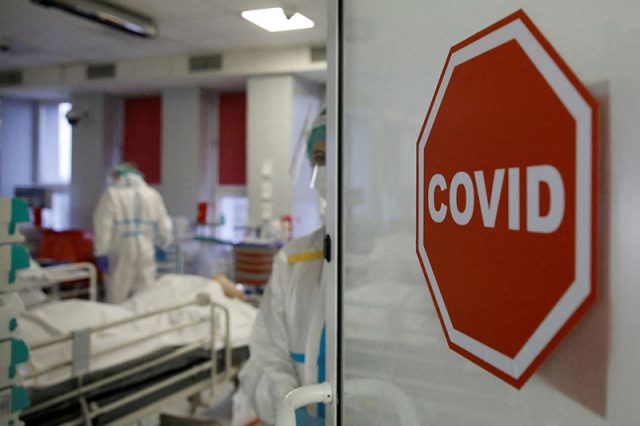[ad_1]

The next is a abstract of some current research on COVID-19. They embrace analysis that warrants additional examine to corroborate the findings and that has but to be licensed by peer evaluate.
Experimental pill vaccine exhibits early promise
An experimental COVID-19 vaccine within the type of an oral pill has proven promising immune responses in a small preliminary trial designed primarily to judge its security, in response to drug producer Vaxart Inc VXRT.O. The South San Francisco, California-based firm had earlier mentioned the pill was properly tolerated, with nobody dropping out of the examine due to opposed results. On Tuesday, they reported on immune responses within the 35 wholesome volunteers who acquired the pill.
Whereas the at the moment authorized vaccines induce antibodies within the blood, the pill induced antibodies within the mucosa – the tissues lining the nostril and airways which might be the primary line of protection in opposition to the virus, in response to a report posted on the medical web site medRxiv forward of peer evaluate. Almost half of volunteers confirmed a rise in long-lasting antibodies able to binding to a number of websites on the Delta and Omicron variants of the virus that causes COVID-19.
Nasal and saliva samples confirmed that half of examine individuals had greater antibody ranges than comparable folks whose antibodies have been the results of earlier COVID-19 infections.
The improved neutralizing capability lasted for six months, the researchers mentioned.
Going ahead, bigger research designed particularly to check the pill’s effectiveness are wanted, as are research to check whether or not this so-called adenovirus-vector vaccine would work properly in individuals who have already got acquired the mRNA vaccines from Pfizer Inc/BioNTech SE PFE.N, 22UAy.DE or Moderna Inc MRNA.O.
Hypertension boosts threat of great Omicron sickness
Hypertension greater than doubles the chance of hospitalization throughout COVID-19 infections with the coronavirus Omicron variant, even in people who find themselves absolutely vaccinated and boosted, a U.S. examine confirmed.
Docs at Cedars-Sinai Medical Middle in Los Angeles studied 912 folks with COVID-19 when Omicron was the dominant variant regardless of having acquired no less than three doses of an mRNA vaccine from Pfizer/BioNTech or Moderna, together with 145 who required hospitalization. The chance for extreme illness was elevated in folks with well-known threat elements comparable to older age, coronary heart failure or kidney illness, the researchers reported on Thursday within the journal Hypertension. However hypertension “was related to the best magnitude of threat,” greater than doubling the percentages that somebody with COVID-19 would should be hospitalized, they added. Even trying solely at youthful folks with typically wholesome organs, hypertension was nonetheless related to “substantial and vital dangers,” they discovered.
“We have been stunned to be taught that many individuals who have been hospitalized with COVID-19 had hypertension and no different threat elements,” examine chief Dr. Susan Cheng mentioned in an announcement. “That is regarding when you think about that just about half of American adults have hypertension.”
Third-trimester Omicron an infection linked with preterm delivery
An infection with the Omicron variant of the coronavirus in the third trimester of being pregnant is linked with an elevated threat of preterm supply, in response to Israeli researchers.
Docs there in contrast 2,753 pregnant sufferers with optimistic PCR assessments for the virus this 12 months to the identical variety of comparable however uninfected pregnant sufferers. Infections weren’t related to preterm delivery when identified within the first or second trimester. However almost half of the ladies have been contaminated within the third trimester. On this group, charges of preterm delivery have been 5.8%, in comparison with 2.3% amongst uninfected girls on the identical stage of being pregnant, the examine discovered.
After accounting for different threat elements, girls identified within the third trimester have been almost thrice extra possible than uninfected girls to supply early, and people identified after 34 weeks of gestation have been roughly seven instances extra prone to have late preterm births, in response to a report printed on Wednesday within the journal PLOS One. Symptomatic infections elevated the dangers even additional.
“Girls throughout their third trimester, particularly after 34 weeks of gestation, ought to apply social distancing and respiratory safety to cut back threat of opposed being pregnant outcomes,” the researchers wrote. They added that girls at earlier phases of being pregnant mustn’t let down their guard as a result of the examine didn’t consider “different potential variations within the mom or new child.”
—Reporting Nancy Lapid and Shawana Alleyne-Morris; Enhancing by Will Dunham
[ad_2]
Source link




